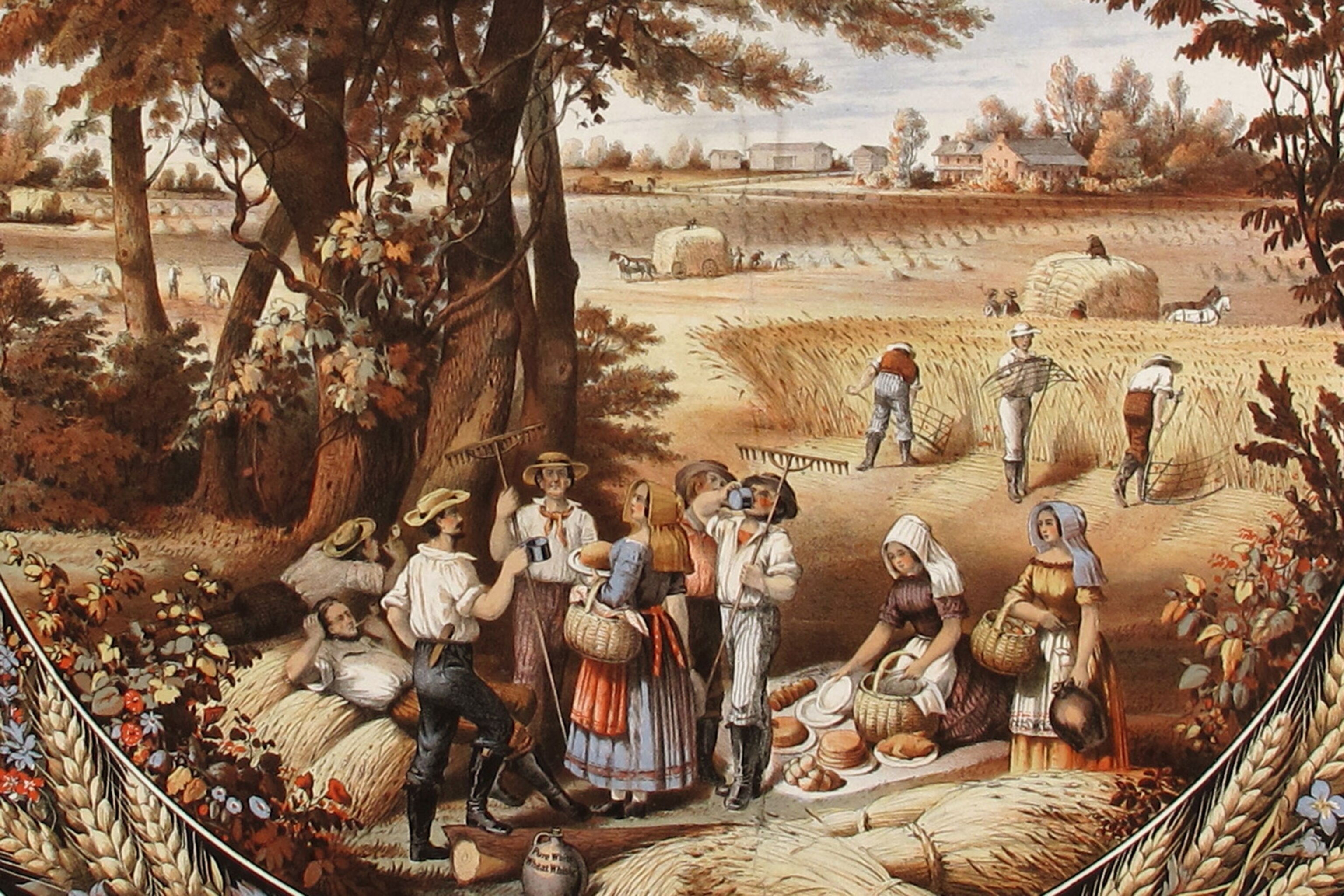
From Fried Canary to Pickled Plums, History’s Questionable Hangover Cures
Had more champagne recently than you can handle?
Ever since human beings have been consuming alcohol—which began, scientists now believe, some ten million years ago with our not-quite-yet-human ancestors—imbibers have been suffering from its awful after-effects. The result of too much of a good thing is far from wonderful: a hideous mix of pounding headache, dry mouth, upset stomach, tremors, wooziness, and general misery known as a hangover. This malady has been with us for a long time, since the unhappy symptoms have been described by the ancient Egyptians, the ancient Greeks, and the authors of the Old Testament.
For millennia, desperate day-after sufferers have been looking for remedies. The Greeks swore by cabbage. Pliny the Elder, 1st-century CE author of the 37-volume Natural History, suggested raw owl’s eggs in wine; alternatively, he proposes a (decapitated) fried canary, dusted with salt and pepper. The Japanese recommend pickled plums; the Germans, pickled herring; and the Canadians, a heaping helping of poutine, a dish of French fries, topped with cheese curds and gravy. Miserable Australians treat their woes with a mug of green ant tea; and suffering Haitians, at least those with a knack for voodoo, go straight for revenge, cursing the at-fault bottle by driving 13 black-headed pins into the cork.

Americans, harking back to Pliny, occasionally opt for a Prairie Oyster, a concoction of raw eggs, Worcestershire sauce, and Tabasco, best consumed in a single quick gulp. The Bloody Mary, a spiced-up mix of tomato juice and vodka, arguably created at Harry’s Bar in Paris in the 1920s, has been touted as a hangover cure; ditto Eggs Benedict, legendarily invented in the aftermath of a night on the town by Wall Street stockbroker Lemuel Benedict, while breakfasting (presumably with a crashing headache) at New York City’s Waldorf Hotel. John Pemberton’s Coca-Cola, which hit the market in 1886, reportedly began life as a hangover cure, which it may well have been at the time, given its original hefty content of caffeine and cocaine.
About 77 percent of drinkers, at one time or another, are afflicted by hangover. Some unlucky alcohol consumers are zonked more others. Women, for example, are more likely to suffer from hangover than men, in part because, since they generally weigh less, their bodies contain less water, and in part because they have less of the enzyme alcohol dehydrogenase (ADH), which acts in the stomach and liver to break down alcohol molecules.

ADH converts alcohol to acetaldehyde, which in turn is pounced upon by an enzyme known as aldehyde dehydrogenase (ALDH). It’s here that people of East Asian descent enter hangover territory. About 40 percent of East Asians produce an inefficient variant form of ALDH that results in an impaired ability to process alcohol. Those with the gene for the variant enzyme get drunk fast, turn red in the face while doing so—a condition nicknamed Asian glow—and are more likely to suffer from alcohol’s potentially mean after-effects.sAnnoyingly, given how long hangover has been dogging us, scientists aren’t really sure what causes it. A commonly cited culprit is dehydration. Alcohol inhibits the hormone vasopressin, that ordinarily keeps us from peeing too much—which is why vasopressin-deprived party-goers, while whooping it up, spend a lot of time trotting to the bathroom. Another possible baddie may be build-up of the above-mentioned acetaldehyde, a toxic compound known to cause nausea and vomiting.

Alternatively, hangover may be the fault of our own immune systems turning on us. Some research indicates that a wild night of drinking prods the immune system into pumping out cytokines, molecules that the body ordinarily mobilizes for fighting disease. In the case of too much alcohol, cytokines’ misplaced protective activities may go too far, leading to symptoms such as headache, nausea, and fatigue, along with an inability to concentrate and disruptions in memory function.
Since nobody knows just what causes hangover, it’s no surprise to find that we don’t know how to cure it either. We may be able to ameliorate it, however, by keeping an eye on just what we decide to drink. The worst of the worst in terms of hangovers may depend on the concentration of congeners in our chosen booze.
Congeners are chemical offshoots of the alcohol fermentation process—and the rule of thumb is that the darker-colored the drink, the higher the concentration of congeners. Bourbon and whiskey, in other words, rich in congeners, make for a more wretched morning-after experience than crystal-clear vodka and gin; and red wines are much more likely to lay you low and moaning than chardonnay. (See Your Complete Guide to the Science of Hangovers.)
Whatever causes hangover, it’s in our economic best interest to get a handle on it. Our national hit for hangovers may be a loss of as much as $220 billion per year, due to fuddled, muddled, miserable, and/or absent employees.
To date, the best cure for hangover, most researchers dampingly agree, is to cut the problem off at the pass by not drinking alcohol. Or at least not much of it. (See Our Historical Relationship With Alcohol: It’s Complicated.)